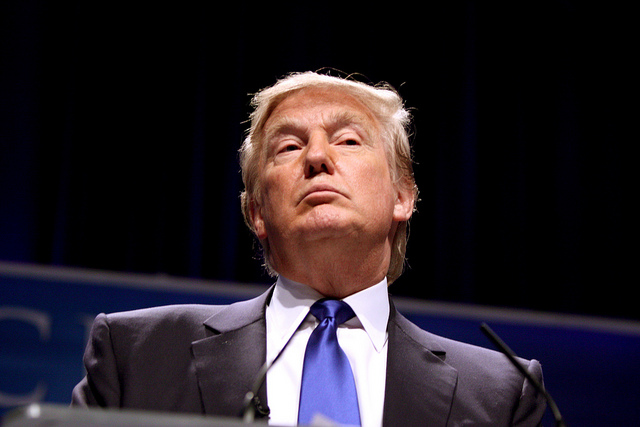The race for the 2016 Republican nomination has been heated and active for months already, but one potential candidate has been dominating the headlines all summer: Donald Trump.
Earlier in the summer, Trump infamously garnered much negative attention – and some positive – when he said of the nation of Mexico sending illegal immigrants over the United States border, “They’re sending people that have lots of problems […] They’re rapists.”
The negative attention was warranted, as it is ill-advised to disparage a group of people by calling them rapists. Yet, to me, what he said was less interesting compared to the reactions in the Republican Party and the results that ensued.
Yes, there were candidates like Rick Perry, Jeb Bush and Marco Rubio that were quick to criticize and hammer Trump for his comments. On the whole, however, the standard Republican reaction was to say, “I disagree with how Trump said what he said, but he raises important points and issues.”
There was no clear, sharp rebuke by Republicans on what Trump said. Instead, it created a cycle in the media where every Republican was asked their opinion on what Trump said. Ted Cruz, Chris Christie, Bobby Jindal and all of the other candidates were forced to talk about what Trump said and not speak about their own policy positions. The name “Trump” was probably uttered by more people and with more frequency than it has ever been since the birther scenario.
This is the part that all the Republican strategists should be paying attention to. Trump skyrocketed to second in the polls in the following weeks and his disapproval rating fell from 55% to 40% among Republicans.
Early polling is often overrated, but it’s important to note that this change was in part to do with how he took a hard stance on an issue without caring about who was offended combined and thus forced every other candidate and person in the media to talk about what he said.
Each candidate should do their own version of what Trump did if they want to distinguish themselves for the others in the race. No, I’m not advocating for them to be as inflammatory and disrespectful as Trump was. Rather, I’m asking them to put themselves out on the limb a little on an issue and craft a vision for the party.
So far, every candidate has been a cookie-cutter Republican candidate. By that I mean that they’ll all say “Repeal and replace Obamacare!” or “Hillary can’t be trusted and is bad for America!” or “Let’s not raise taxes and try to grow the economy by supporting small business.” Every single one will say that and it’ll be hard for Republican primary voters to differentiate the candidates.
Instead, Republican candidates should create their own unique vision for the country. They shouldn’t tell voters that they’ll repeal and replace Obamacare; rather, they should detail what type of health care system they’ll replace it with. Or, for someone like Rand Paul, he should reiterate that he is against drone strikes and is for criminal justice reform. Again, force everyone else to talk about what you said.
Not every presidential hopeful can do this, but candidates like Rand Paul, Scott Walker and Marco Rubio are best positioned to do so, particularly Rubio, as he is the most skilled at articulating his views and positions compared to anyone else in the field. They each need to find their own special interest issue or even a set of issues to run with and campaign on.
The advice I’m giving to Republicans only pertains to the primary elections. There is more than enough time to flesh out and debate your stances on issues in a general election where there are only two candidates. However, it’ll help the Republican voter heading into the primaries if they can say, “I can support this candidate because I know his or her stance on the issues and vision for America.”




